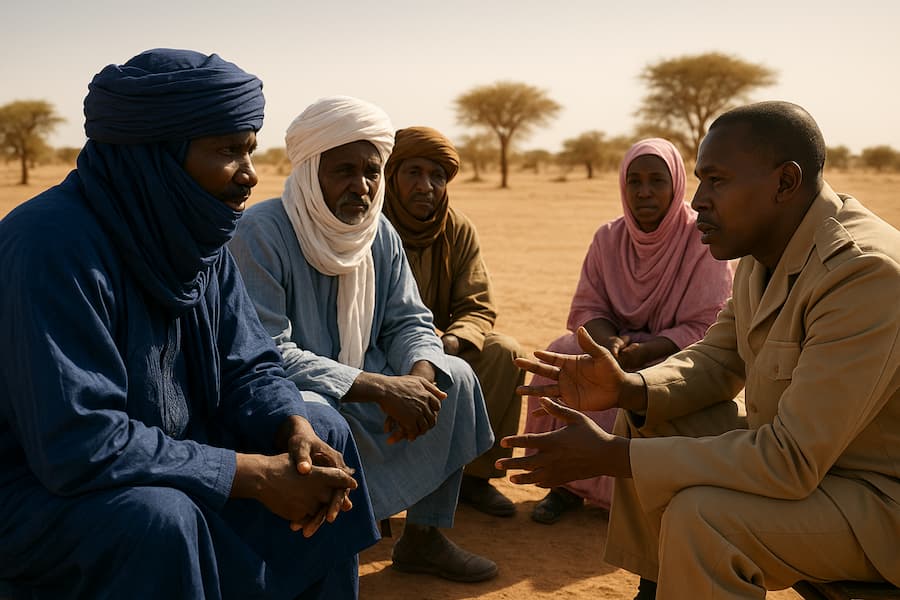Senegal’s Credit Rating Downgrade: A Warning to Economies Around the World
In recent months, Senegal’s credit rating was downgraded by international agencies, a significant event that underscores a growing global trend: credit rating agencies are now more vigilant in holding governments accountable for their financial management. This downgrade raises important questions about fiscal transparency, economic governance, and the broader impact on global financial markets.
The Downward Spiral of Senegal’s Credit Rating
Senegal, a prominent country in West Africa known for its stable political environment and growing economy, has recently seen its credit rating fall. The country’s rating downgrade came after concerns over the country’s mounting debt, fiscal imbalances, and inconsistent economic reporting. Credit rating agencies such as Standard & Poor’s (S\&P), Moody’s, and Fitch have been increasingly scrutinizing countries’ financial reports, requiring them to demonstrate clear and reliable data on their economic performance.
For years, Senegal was considered a model of economic growth in Africa, with a relatively stable GDP growth rate and strong infrastructure development. However, recent indicators show a weakening in fiscal discipline, especially regarding debt management. The country’s rising public debt, combined with delayed reporting and lack of transparency in fiscal operations, became a red flag for the international financial community.
Financial Transparency: A Growing Global Demand
One of the key reasons for the downgrade is Senegal’s failure to fully adhere to global financial transparency standards. Credit rating agencies are demanding more precise and timely reporting from nations, particularly those in emerging markets. The failure to provide accurate financial data or meet the required standards can lead to a loss of investor confidence, which, in turn, results in downgrades or worsened financial outlooks.
This development is part of a larger trend where countries worldwide are under increasing pressure to provide clearer financial reports. International organizations and rating agencies have been pushing governments to ensure that their financial data is not only accurate but also publicly available and easy to understand. This push is designed to safeguard the interests of investors, creditors, and taxpayers alike, ensuring that governments do not mismanage their funds or conceal economic weaknesses.
The Impact of the Downgrade on Senegal’s Economy
The downgrade has far-reaching implications for Senegal’s economic future. When a country’s credit rating is downgraded, it becomes more expensive for that country to borrow money on international financial markets. Investors demand higher interest rates to compensate for the perceived risk of lending to a government that is seen as financially unstable. As a result, the government of Senegal could face higher borrowing costs, which may negatively affect its ability to finance infrastructure projects or social programs.
In addition, the downgrade could also affect private sector confidence. If foreign investors perceive the country’s economic situation as risky, they may be less inclined to invest in Senegal, potentially slowing down economic growth. In a globalized world where capital moves swiftly and without borders, even a small dip in investor confidence can have large-scale consequences for an economy.
Moreover, Senegal’s rating downgrade could affect its trade relations. Many international trade deals are negotiated based on a country’s credit rating, and a downgrade could impact Senegal’s standing in such negotiations. For example, countries with lower credit ratings are often subject to higher tariffs and other trade barriers, which could limit Senegal’s ability to expand its market access.
The Global Trend Toward Stricter Fiscal Accountability
Senegal’s experience is part of a broader global trend in which rating agencies are increasingly emphasizing fiscal accountability. In the past, many countries, especially in the developing world, had more leeway when it came to how they managed their finances. However, this is changing, and the pressure on governments to demonstrate financial stability is growing.
This shift can be attributed to several factors:
- Increased Global Financial Integration: As economies around the world become more interconnected, the impact of one country’s financial instability can ripple across the globe. Rating agencies are now more focused on ensuring that countries manage their economies in a way that avoids causing financial shocks that could spread to other nations.
- Higher Debt Levels: Many countries, including emerging economies, are taking on more debt to finance their infrastructure and development projects. While this is often necessary for growth, it also increases the need for careful management and reporting to avoid overleveraging and falling into debt crises.
- Investor Demands for Transparency: Investors, both institutional and individual, are becoming more sophisticated and are demanding greater transparency in financial reporting. As capital flows are increasingly global, investors want to ensure that they are making sound decisions based on accurate and reliable information.
- International Pressure for Reform: Multilateral organizations such as the International Monetary Fund (IMF) and the World Bank are also advocating for better fiscal transparency and economic governance in developing nations. Countries that fail to meet these standards may face difficulties in securing international aid or concessional loans.
The Road Ahead for Senegal
For Senegal, the downgrade represents both a challenge and an opportunity. The country must take decisive steps to restore investor confidence and improve its financial reporting. This could involve implementing more robust fiscal management systems, providing clearer and more timely data, and addressing concerns about debt sustainability.
Senegal’s government will also need to engage in proactive dialogue with international financial institutions and rating agencies to demonstrate its commitment to sound economic management. By adopting reforms and showing a willingness to address the underlying issues, Senegal can work toward regaining its previous credit rating and stabilizing its economy.
At the same time, this situation presents an opportunity for the Senegalese government to strengthen its financial institutions and improve public trust. If the country can effectively manage its finances and demonstrate fiscal discipline, it could emerge from this setback stronger and more resilient, both in the eyes of international investors and its own citizens.
Conclusion: A Wake-up Call for Countries Everywhere
Senegal’s credit rating downgrade serves as a cautionary tale for nations worldwide. It highlights the growing global demand for financial transparency and fiscal responsibility. As the international economy becomes more interconnected, countries that fail to meet these expectations risk facing financial isolation and higher borrowing costs, with potentially devastating consequences for their long-term economic health.
For governments in both emerging and developed economies, the message is clear: the time to invest in sound financial governance and transparent economic reporting is now. Countries that prioritize these areas will be better positioned to weather economic storms and attract the investments needed to foster growth and development. In a world where financial stability is more crucial than ever, nations must understand that the cost of not keeping their numbers in check can be far greater than any immediate benefit gained from neglecting fiscal transparency.
In the case of Senegal, the downgrade may be a temporary setback, but it offers valuable lessons for other countries about the importance of maintaining fiscal discipline and financial transparency in an increasingly globalized and interconnected world.
For more news: africaciviclens.com




